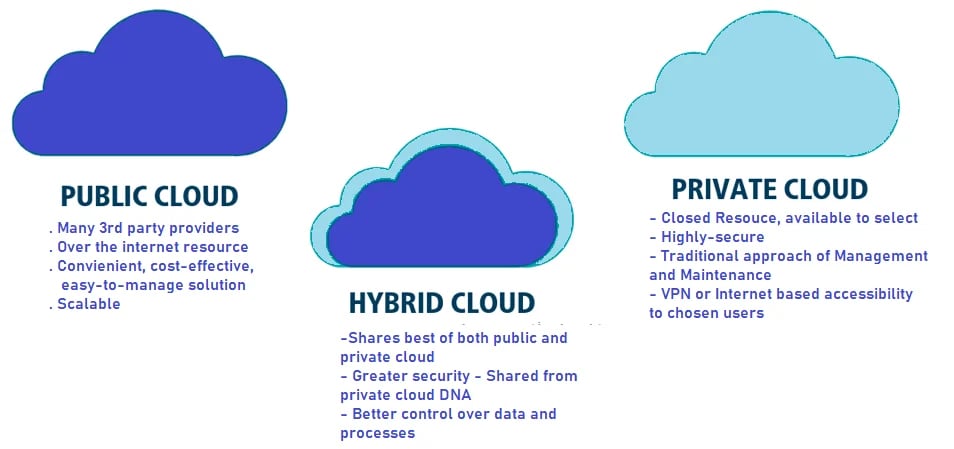How China Is Policing the Future
[ad_1]
The additional than 1.4 billion individuals dwelling in China are continuously watched. They are recorded by police cameras that are everywhere, on avenue corners and subway ceilings, in resort lobbies and apartment buildings. Their telephones are tracked, their buys are monitored, and their on line chats are censored.
Now, even their long term is under surveillance.
The latest technology of technologies digs through the large quantities of facts collected on their daily actions to obtain designs and aberrations, promising to forecast crimes or protests just before they materialize. They concentrate on potential troublemakers in the eyes of the Chinese federal government — not only these with a prison earlier but also susceptible groups, including ethnic minorities, migrant employees and these with a record of psychological ailment.
They can warn the police if a target of a fraud attempts to vacation to Beijing to petition the govt for payment or a drug user helps make as well quite a few phone calls to the same number. They can signal officers just about every time a man or woman with a history of psychological disease gets in the vicinity of a college.
It takes considerable evasive maneuvers to prevent the electronic tripwires. In the previous, Zhang Yuqiao, a 74-calendar year-previous man who has been petitioning the federal government for most of his adult lifetime, could just stay off the principal highways to dodge the authorities and make his way to Beijing to battle for compensation more than the torture of his mothers and fathers for the duration of the Cultural Revolution. Now, he turns off his telephones, pays in income and purchases numerous practice tickets to false destinations.
Though mainly unproven, the new Chinese systems, in depth in procurement and other documents reviewed by The New York Occasions, further extend the boundaries of social and political controls and integrate them ever deeper into people’s lives. At their most fundamental, they justify suffocating surveillance and violate privateness, whilst in the serious they chance automating systemic discrimination and political repression.
For the governing administration, social stability is paramount and any menace to it must be removed. All through his 10 years as China’s prime leader, Xi Jinping has hardened and centralized the security condition, unleashing techno-authoritarian insurance policies to quell ethnic unrest in the western region of Xinjiang and implement some of the world’s most severe coronavirus lockdowns. The house for dissent, generally confined, is rapidly disappearing.
“Big info ought to be applied as an engine to ability the modern improvement of community security perform and a new expansion level for nurturing fight capabilities,” Mr. Xi said in 2019 at a national general public safety get the job done assembly.
The algorithms, which would confirm controversial in other nations around the world, are typically trumpeted as triumphs.
In 2020, the authorities in southern China denied a woman’s request to shift to Hong Kong to be with her partner following program alerted them that the relationship was suspicious, the neighborhood police described. An ensuing investigation discovered that the two have been not often in the exact place at the exact same time and experienced not invested the Spring Competition holiday break jointly. The police concluded that the marriage experienced been faked to receive a migration allow.
The identical yr in northern China, an automated notify about a man’s regular entry into a household compound with distinctive companions prompted the law enforcement to look into. They identified that he was a section of a pyramid plan, according to condition media.
The specifics of these emerging safety technologies are described in law enforcement exploration papers, surveillance contractor patents and shows, as effectively as hundreds of community procurement paperwork reviewed and verified by The Instances. Several of the procurement paperwork were shared by ChinaFile, an online magazine posted by the Asia Modern society, which has systematically collected years of data on govt sites. Another established, describing software package acquired by the authorities in the port town of Tianjin to end petitioners from likely to neighboring Beijing, was offered by IPVM, a surveillance market publication.
China’s Ministry of Community Security did not react to requests for comment faxed to its headquarters in Beijing and 6 regional departments across the place.
The new technique to surveillance is partly centered on knowledge-pushed policing computer software from the United States and Europe, technology that legal rights teams say has encoded racism into selections like which neighborhoods are most heavily policed and which prisoners get parole. China usually takes it to the severe, tapping nationwide reservoirs of facts that allow the law enforcement to operate with opacity and impunity.
Generally men and women never know they’re becoming viewed. The law enforcement experience little outside the house scrutiny of the success of the know-how or the actions they prompt. The Chinese authorities demand no warrants to acquire personal data.
At the most bleeding edge, the methods raise perennial science-fiction conundrums: How is it feasible to know the long run has been properly predicted if the police intervene just before it occurs?
Even when the computer software fails to deduce human actions, it can be considered successful since the surveillance alone inhibits unrest and crime, experts say.
“This is an invisible cage of know-how imposed on society,” mentioned Maya Wang, a senior China researcher with Human Legal rights Check out, “the disproportionate brunt of it currently being felt by groups of persons that are already severely discriminated against in Chinese culture.”
‘Nowhere to Hide’
In 2017, just one of China’s finest-identified entrepreneurs had a bold eyesight for the potential: a personal computer technique that could forecast crimes.
The entrepreneur, Yin Qi, who founded Megvii, an synthetic intelligence commence-up, advised Chinese state media that the surveillance method could give the law enforcement a lookup engine for crime, examining massive amounts of movie footage to intuit patterns and warn the authorities about sus
picious actions. He discussed that if cameras detected a individual expending way too a great deal time at a prepare station, the procedure could flag a attainable pickpocket.
“It would be scary if there were being truly people today watching behind the digital camera, but driving it is a system,” Mr. Yin said. “It’s like the search engine we use each and every working day to surf the world wide web — it is extremely neutral. It’s meant to be a benevolent thing.”
He added that with such surveillance, “the undesirable fellas have nowhere to cover.”
Five years later, his eyesight is little by little becoming fact. Internal Megvii shows reviewed by The Moments display how the start off-up’s products and solutions assemble comprehensive electronic dossiers for the law enforcement.
“Build a multidimensional database that shops faces, pics, autos, scenarios and incident records,” reads a description of a single item, known as “intelligent research.” The software analyzes the facts to “dig out common men and women who feel innocent” to “stifle unlawful acts in the cradle.”
A Megvii spokesman said in an emailed assertion that the organization was fully commited to the accountable advancement of artificial intelligence, and that it was involved about generating lifestyle a lot more protected and effortless and “not about checking any specific group or particular person.”
Identical technologies are previously being set into use. In 2022, the police in Tianjin purchased program produced by a Megvii competitor, Hikvision, that aims to predict protests. The system collects info on legions of Chinese petitioners, a basic time period in China that describes people today who try out to file issues about community officers with increased authorities.
It then scores petitioners on the chance that they will journey to Beijing. In the long term, the facts will be employed to coach equipment-understanding styles, in accordance to a procurement doc.
Area officers want to avert such excursions to stay away from political embarrassment or publicity of wrongdoing. And the central authorities doesn’t want teams of disgruntled citizens accumulating in the cash.
A Hikvision consultant declined to comment on the program.
Beneath Mr. Xi, official endeavours to manage petitioners have developed ever more invasive. Zekun Wang, a 32-year-previous member of a group that for decades sought redress about a true estate fraud, claimed the authorities in 2017 had intercepted fellow petitioners in Shanghai prior to they could even buy tickets to Beijing. He suspected that the authorities had been looking at their communications on the social media application WeChat.
The Hikvision technique in Tianjin, which is run in cooperation with the law enforcement in close by Beijing and Hebei Province, is additional sophisticated.
The platform analyzes individuals’ likelihood to petition centered on their social and family interactions, earlier journeys and private conditions, according to the procurement document. It allows the police build a profile of each individual, with fields for officers to explain the temperament of the protester, including “paranoid,” “meticulous” and “short tempered.”
Quite a few persons who petition do so above govt mishandling of a tragic accident or neglect in the situation — all of which goes into the algorithm. “Increase a person’s early-warning hazard level if they have minimal social position or went by way of a key tragedy,” reads the procurement doc.
Automating Prejudice
When the police in Zhouning, a rural county in Fujian Province, purchased a new established of 439 cameras in 2018, they outlined coordinates where every would go. Some hung earlier mentioned intersections and others in the vicinity of colleges, according to a procurement doc.
Nine ended up put in outdoors the houses of people with anything in frequent: mental disease.
While some software package attempts to use info to uncover new threats, a more popular sort is based mostly on the preconceived notions of the law enforcement. In around a hundred procurement paperwork reviewed by The Periods, the surveillance targeted blacklists of “key individuals.”
These individuals, according to some of the procurement paperwork, provided those with psychological illness, convicted criminals, fugitives, drug consumers, petitioners, suspected terrorists, political agitators and threats to social steadiness. Other programs qualified migrant staff, idle youths (teenagers devoid of university or a occupation), ethnic minorities, foreigners and those contaminated with H.I.V.
The authorities make your mind up who goes on the lists, and there is normally no process to notify individuals when they do. As soon as men and women are in a databases, they are not often taken off, said experts, who concerned that the new systems strengthen disparities within China, imposing surveillance on the minimum fortuitous elements of its population.
In numerous cases the computer software goes additional than basically concentrating on a population, permitting the authorities to established up electronic tripwires that point out a attainable danger. In a single Megvii presentation detailing a rival products by Yitu, the system’s interface permitted the police to devise their possess early warnings.
With a easy fill-in-the-blank menu, the law enforcement can base alarms on certain parameters, which includes where a blacklisted human being seems, when the particular person moves all around, no matter whether he or she meets with other blacklisted people today and the frequency of selected activities. The law enforcement could set the technique to ship a warning every time two men and women with a history of drug use check into the similar resort or when 4 folks with a heritage of protest enter the identical park.
Yitu did not reply to emailed requests for comment.
In 2020 in the town of Nanning, the police purchased program that could appear for “more than 3 essential individuals examining into the exact or close by hotels” and “a drug consumer calling a new out-of-town number regularly,” in accordance to a bidding document. In Yangshuo, a vacationer town well-known for its otherworldly karst mountains, the authorities purchased a program to notify them if a foreigner with no a get the job done permit used much too considerably time hanging around in
ternational-language educational facilities or bars, an apparent effort to capture persons overstaying their visas or working illegally.
In Shanghai, a single party-operate publication described how the authorities utilized software program to establish individuals who exceeded normal h2o and electrical energy use. The system would deliver a “digital whistle” to the police when it found suspicious use designs.
The tactic was likely made to detect migrant workers, who often stay with each other in shut quarters to preserve cash. In some sites, the police consider them an elusive, and normally impoverished, group who can deliver criminal offense into communities.
The automatic alerts really don’t consequence in the exact same amount of police response. Frequently, the law enforcement give priority to warnings that place to political difficulties, like protests or other threats to social steadiness, said Suzanne E. Scoggins, a professor at Clark University who scientific tests China’s policing.
At occasions, the law enforcement have said outright the have to have to profile folks. “Through the application of large data, we paint a image of people and give them labels with distinctive attributes,” Li Wei, a researcher at China’s countrywide police university, stated in a 2016 speech. “For people who obtain one particular or extra sorts of labels, we infer their identities and behavior, and then carry out focused pre-emptive safety steps.”
Towards Techno Totalitarianism
Mr. Zhang to start with started off petitioning the government for payment in excess of the torture of his household all through the Cultural Revolution. He has given that petitioned around what he says is law enforcement targeting of his relatives.
As China has developed out its techno-authoritarian applications, he has experienced to use spy film tactics to circumvent surveillance that, he claimed, has become “high tech and Nazified.”
When he traveled to Beijing in January from his village in Shandong Province, he turned off his phone and paid for transportation in income to minimize his electronic footprint. He acquired educate tickets to the erroneous place to foil law enforcement tracking. He hired personal motorists to get all-around checkpoints in which his identification card would established off an alarm.
The procedure in Tianjin has a exclusive attribute for men and women like him who have “a selected recognition of anti-reconnaissance” and consistently transform automobiles to evade detection, in accordance to the law enforcement procurement doc.
Whether or not he induced the program, Mr. Zhang has found a change. Each time he turns off his telephone, he claimed, officers demonstrate up at his house to test that he hasn’t left on a new journey to Beijing.
Even if law enforcement methods are unable to properly forecast behavior, the authorities could take into consideration them successful because of the menace, reported Noam Yuchtman, an economics professor at the London School of Economics who has analyzed the influence of surveillance in China.
“In a context in which there is not authentic political accountability,” acquiring a surveillance program that often sends police officers “can operate really well” at discouraging unrest, he reported.
As soon as the metrics are set and the warnings are activated, law enforcement officers have minor overall flexibility, centralizing management. They are evaluated for their responsiveness to automated alarms and usefulness at protecting against protests, according to professionals and general public police stories.
The engineering has encoded electrical power imbalances. Some bidding documents refer to a “red list” of people today whom the surveillance method should dismiss.
One countrywide procurement document explained the operate was for “people who require privateness security or V.I.P. defense.” A different, from Guangdong Province, obtained a lot more unique, stipulating that the purple listing was for government officials.
Mr. Zhang expressed disappointment at the strategies engineering experienced slice off those people in political electricity from normal people.
“The authorities do not seriously remedy difficulties but do whatever it requires to silence the men and women who elevate the challenges,” he said. “This is a significant move backward for society.”
Mr. Zhang claimed that he nonetheless thought in the electrical power of engineering to do superior, but that in the erroneous fingers it could be a “scourge and a shackle.”
“In the past if you still left your household and took to the countryside, all streets led to Beijing,” he reported. “Now, the whole place is a net.”
Isabelle Qian and Aaron Krolik contributed investigate and reporting. Generation by Agnes Chang and Alexander Cardia.
[ad_2]
Resource connection




